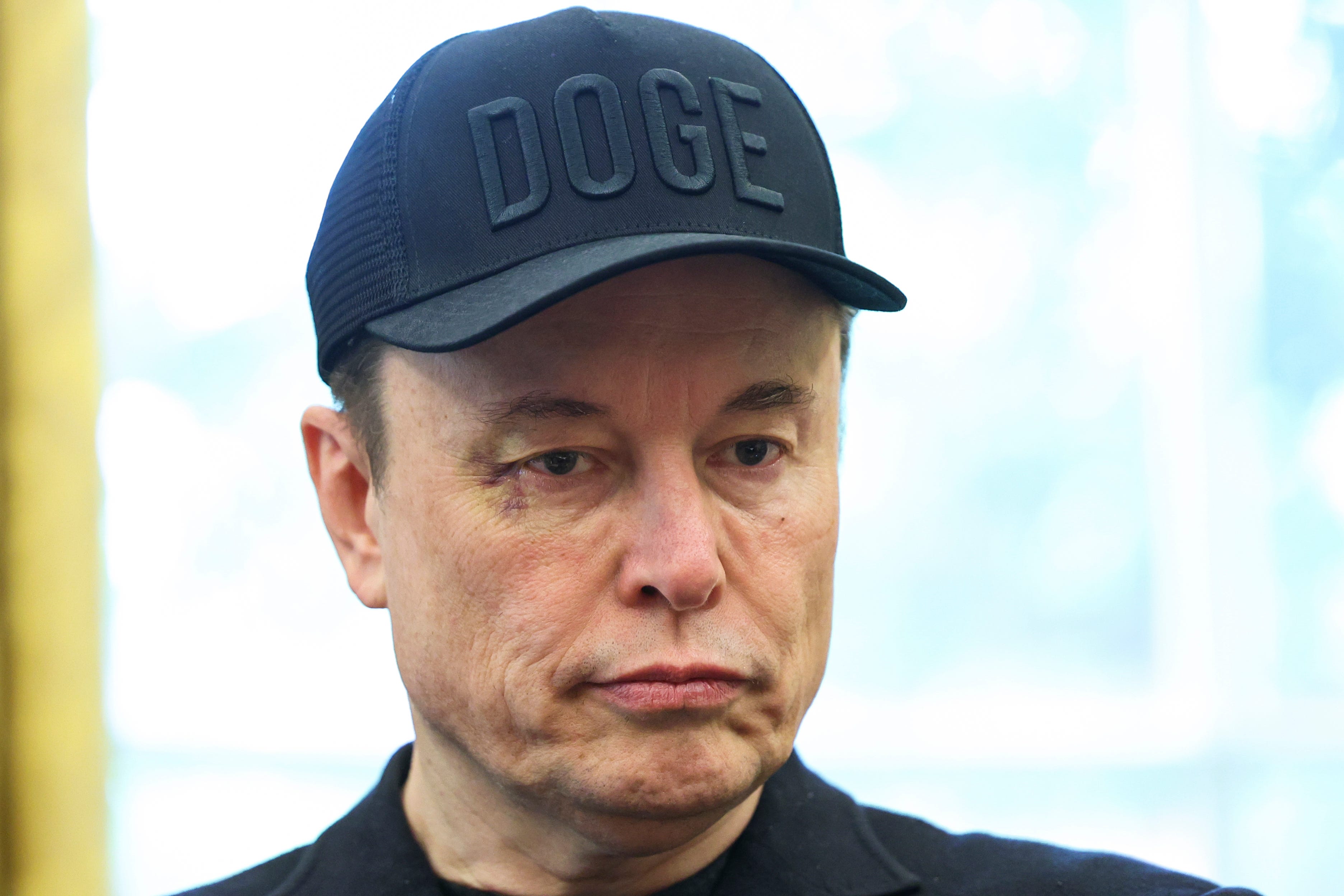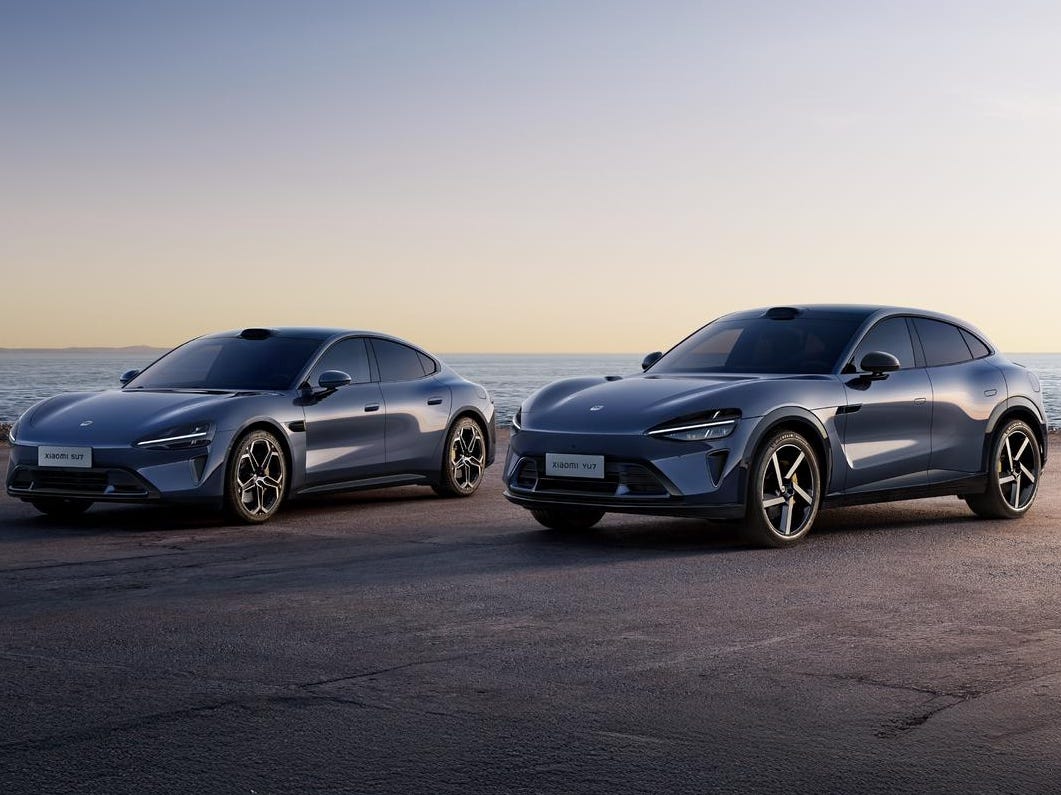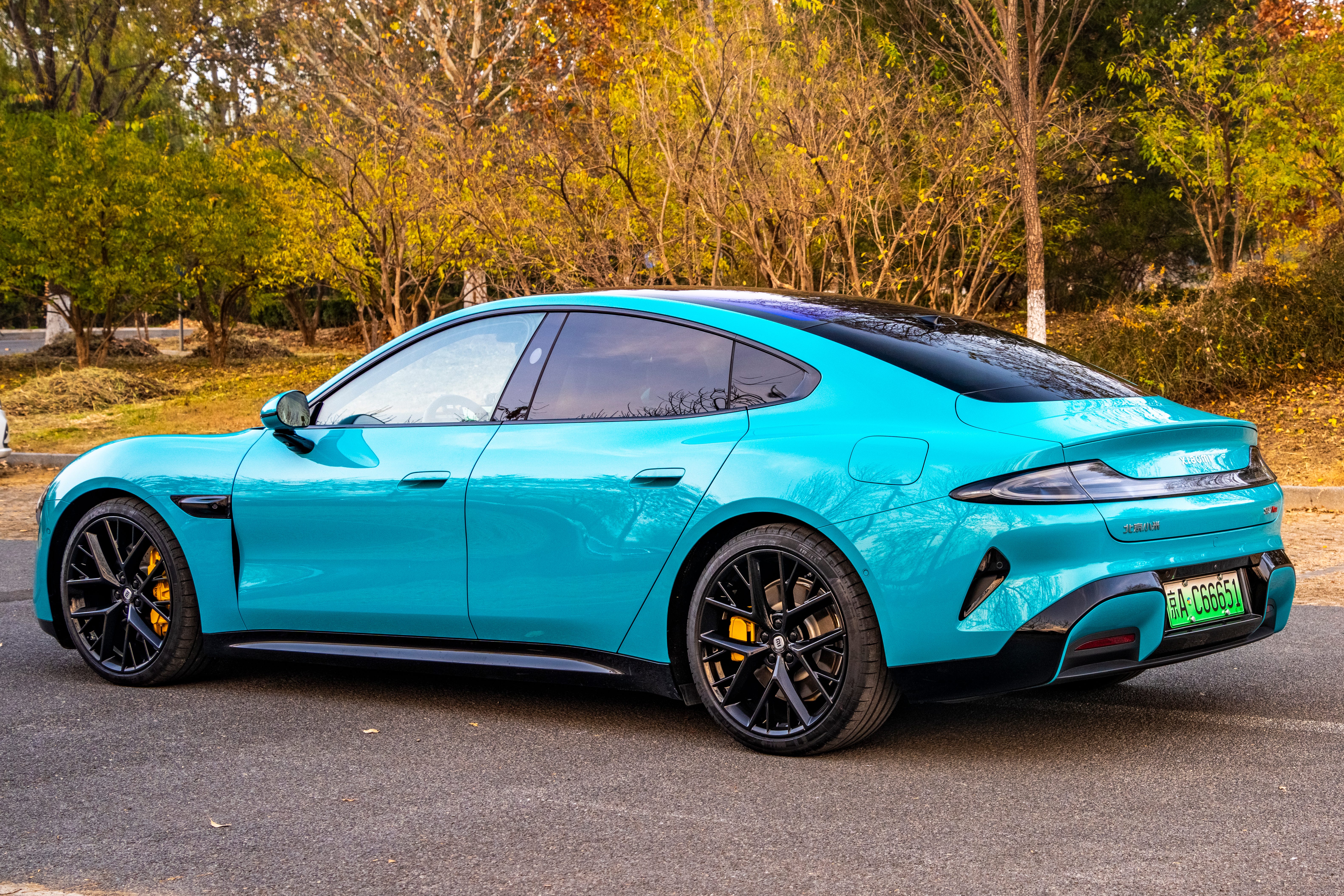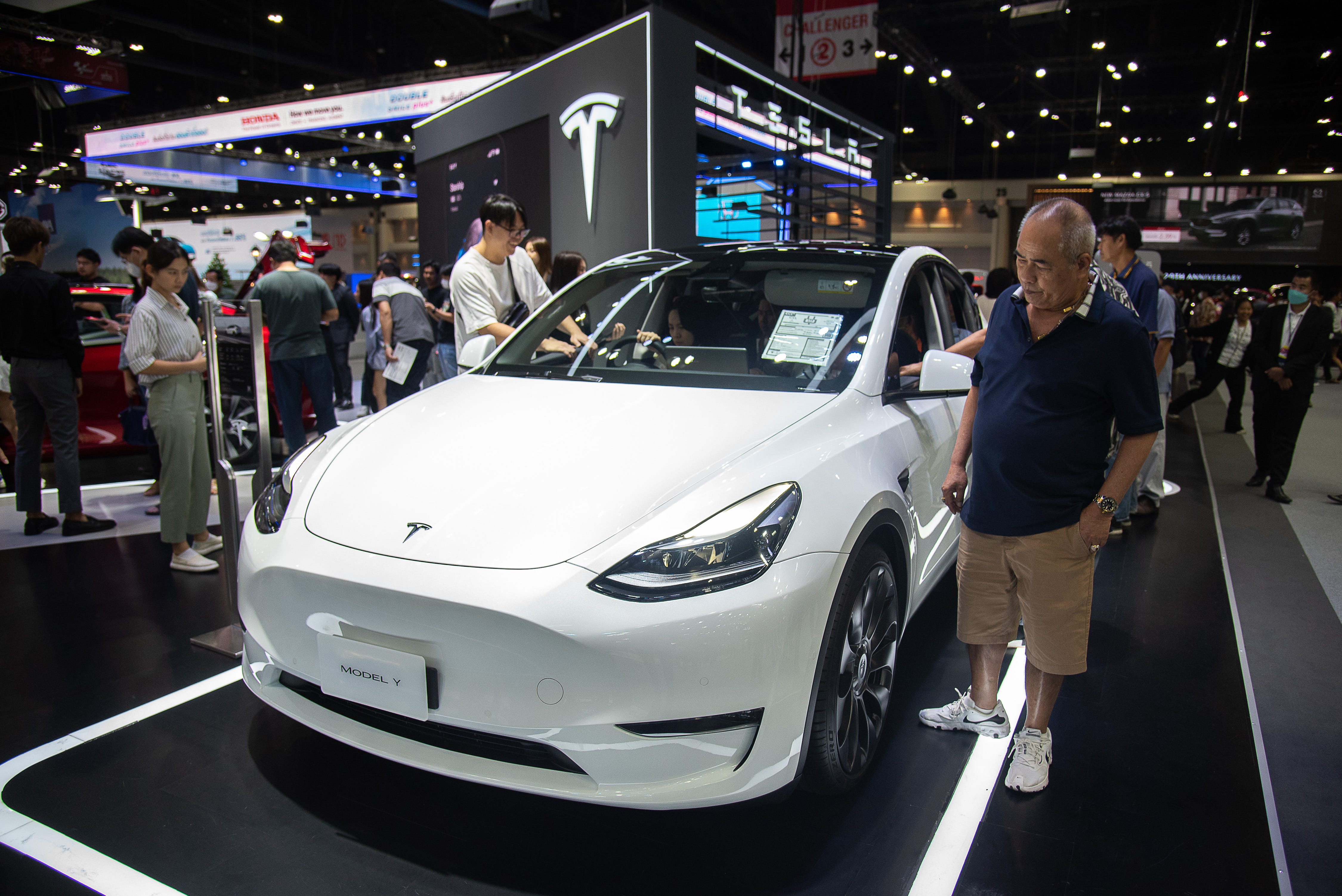
Tom Brenner/The Washington Post/Getty Images
Tesla‘s China nightmare just deepened — again.
The latest blow came from Chinese smartphone and electric vehicle maker Xiaomi, which announced Thursday it had received close to 300,000 orders for its new YU7 electric SUV within an hour of its launch.
The YU7, priced at the equivalent of $35,000 in China, is a direct competitor to Tesla’s best-selling Model Y, which starts at $36,760.
Xiaomi CEO Lei Jun didn’t hold back during YU7’s launch on Thursday, saying his company would “not accept defeat” and was officially taking up Tesla’s long-standing challenge to compare products head-to-head.

Xiaomi
The SUV’s price edge, paired with better specs and sky-high local enthusiasm, could spell trouble for Tesla’s operations.
“The new Xiaomi is probably Tesla’s largest threat so far, not only in China but globally. It’s very competitive and appealing,” Felipe Muñoz, global analyst at JATO Dynamics, told Business Insider.
Not just an EV company
That threat goes beyond pricing and performance, according to Bill Russo, CEO of Shanghai-based consultancy Automobility.
“They’re not just an EV company,” he told Bloomberg TV. “They’re creating a fully integrated digital ecosystem, value proposition, which, in China, the world’s biggest digital economy, resonates very, very well.”
Russo said Xiaomi is applying a “smartphone mindset” to vehicles — treating cars as digital terminals within a broader network of connected devices.
With more than 600 million Xiaomi-branded smart devices in use globally, that ecosystem advantage could drive deeper customer loyalty than traditional automakers can muster.
“They recognize this opportunity, they entered it, and in one year with one model, they’re outselling Tesla in China,” Russo said. “So I think you’re going to see a pretty strong, positive momentum for this company going forward.”
Xiaomi’s first car, the SU7, went on sale in China last year. Ford’s CEO has called it “fantastic,” and Business Insider’s reviewer concluded that the EV “simply shouldn’t drive this well given it’s from a company that has not produced vehicles before.”

Mark Andrews
Tesla’s plunging sales
The YU7’s launch comes at a difficult time for Tesla.
According to data from Shanghai-based consultancy ThinkerCar, Tesla’s battery electric vehicle sales in China dropped 18% year-over-year between January and May 2025.
In contrast, rival BYD surged, selling 894,000 EVs globally over the same period, compared to Tesla’s 603,000, overtaking it by a margin of 291,000 vehicles.
BYD also overtook Tesla in global revenue last year, bringing in $107 billion versus $97.7 billion for Tesla.
In April, BYD surpassed Tesla’s sales in Europe for the first time, selling 7,230 battery-electric vehicles versus 7,165 for Tesla, according to JATO Dynamics data.

SOPA Images/Getty Images
Muñoz said a key factor is Tesla’s aging lineup, particularly the Model Y.
“It’s about time to get an all-new generation,” he said. “However, based on the strategy implemented with other models, it doesn’t seem that an all-new Model Y is coming anytime soon.”
He said that might not be a problem in the US or Europe, where Tesla still leads on specs and battery performance, but it is in China. “The rivals are catching up fast and the price war is very aggressive.”
Internal turmoil
The growing pressure also seems to be straining operations.
On Thursday, multiple outlets reported that Omead Afshar, Tesla’s VP of manufacturing and a longtime Musk ally, had left the company.
His departure follows that of Milan Kovac, head of the Optimus humanoid robot project, earlier this month.
“The dismissal of Afshar is part of the game and Tesla’s response to the increasing challenges in China, considering that it can’t react fast from a product point of view,” Muñoz said. “The Model Y is still one of China’s top sellers, but it is not alone anymore.”
Meanwhile, Xiaomi is riding a wave of momentum. Its stock is up 72% this year, driven by EV success, smartphone dominance, and expansion into home appliances.
Still, Muñoz cautioned against writing off Tesla just yet.
“There’s room for more models because the demand is still responding to the increasing offer. The YU7 is one of them, but it won’t mean the defeat of Tesla,” he said.
“It will complicate life, but Tesla has already built a reputation of excellent EVs and is a pioneer in the EV industry.”
Not everyone is convinced Tesla can keep its edge. Russo noted that while Tesla led on software innovation, it lacks the localized integration that increasingly matters in China.
“Tesla, as a software pioneer, you get consideration,” he said. “But quite frankly, they don’t have the digital ecosystem localized in the way the Chinese consumer wants them.”
The post Things just keep getting more difficult in China for Elon Musk’s Tesla appeared first on Business Insider.




